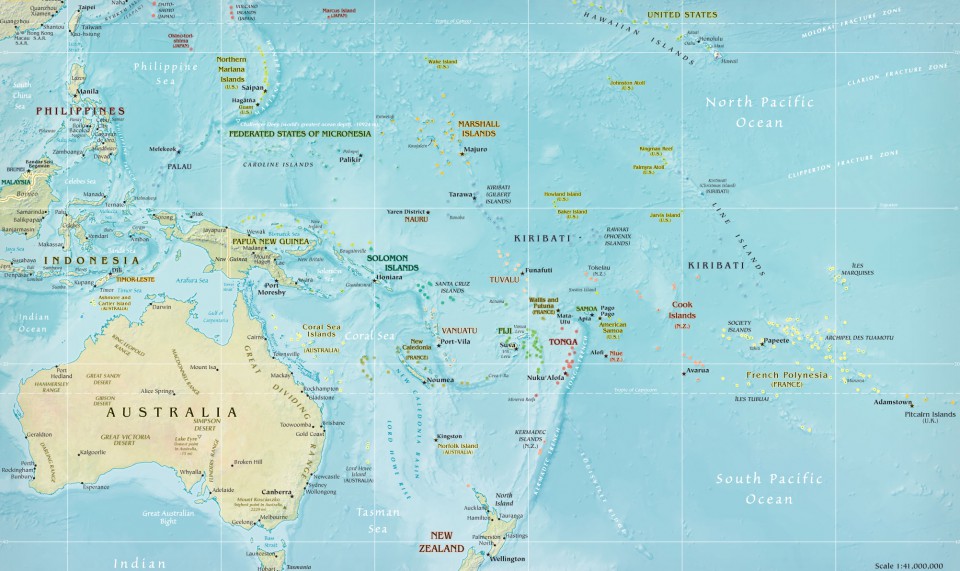Robert Kenny, an Australian scholar, poet and writer, has a paper entitled, ‘Freud, Jung and Boas: the psychoanalytic engagement with anthropology revisited’, in the June 2015 edition of the journal Notes and Records: The Royal Society of the History of Science. It is a cogently and carefully written piece challenging accepted interpretations, if not wisdom, about Freud’s development of his social theories in the 1910s. The essay is part of a larger project Kenny has been working on since, at least, the publication of his book, The Lamb enters the Dreaming: Nathanael Pepper and the ruptured world in 2007.
Kenny’s argument centres upon Freud’s and Jung’s visit to the United States in 1909 to attend and lecture at a Congress at Cark University. It is no co-incidence, Kenny argues, that their encounter with the personage and the anthropological work of Franz Boas, who also lectured at the Congress, that there was a shift of focus to anthropological interests in the months and years immediately afterwards. In his lecture, Kenny writes, Boas challenged social darwinist ideas placing humanity of a scale of development from savage to civilised, arguing that culture was a response to environment and, essentially, throwing Spencerian theory out of the window. This culminated, in Freud’s case, the publication of Totem and Taboo and in Jung’s his book, Transformations. Kenny’s abstract reads:
Sigmund Freud’s and C. G. Jung’s turn to evolutionist anthropological material after 1909 is usually seen as a logical progression of their long-term interest in such material. It is also seen that they used this material ignorant of the significant challenges to the evolutionist paradigm underpinning such material, in particular the challenges led by Franz Boas. This paper argues otherwise: that both psychologists’ turnings to such material was a new development, that neither had shown great interest in such material before 1909, and that their turnings to such material, far from being taken in ignorance of the challenges to evolutionist anthropology, were engagements with those challenges, because the evolutionist paradigm lay at the base of psychoanalysis. It argues that it is no coincidence that this engagement occurred after their return from America in 1909, where they had come into first-hand contact with the challenges of Franz Boas.
Analysis of cultural subjectivity is central to Kenny’s historical writing. Very much influenced by the ethnohistorians, Greg Dening, Rhys Isaac and Inga Clendinnen, Kenny’s 2007 book, The Lamb Enters the Dreaming, traced the life of Nathanael Pepper of the Wotjobaluk people, who was born as the first white pastoralists were driving cattle and sheep into Victoria’s Wimmera region. The book opens one’s mind to the ways these pastoralists and the Wotjobaluk people thought about and responded to one another. Following Dening’s analysis of the encounter with cultural specificities across time and place Kenny argues for recognition of the respective, and unconsciously held, subjectivities of the pastoralistd and Wotjobaluk. If the social unconscious is framed by those unconsciously held constraints and restraints that shape action and response: if neither pastoralist or Wotjobaluk were able to find in the other affirmation of preconceptions shaped and held from birth, then it would have been difficult for either side to recognize, let alone think about the other, other than in their own terms.
Kenny’s latest essay opens further the question of how unconsciously held European subjectivity – particularly the formation of darwinist theory – influenced the way the development of the mind and the social was understood. Boas provided the inspiration and impetus to look at accepted ideas more closely, if not to see them in the first place. And in that sense Kenny’s essay also adds to a growing body of writing – Rudnytsky comes to mind – recovering the voices and writers that ultimately, and also found expression in Freud’s work.
References
Greg Dening ( 1980), Islands and Beaches: Discources on a silent land: Marquesas 1774-1880, Honolulu, Hawaii, The University Press of Hawaii.
Robert Kenny (2007), The Lamb Enters The Dreaming: Nathanael Pepper and the Ruptured World, Melbourne, Scribe Publications.
Robert Kenny (2015), Freud, Jung and Boas: the psychoanalytic engagement with anthrpology revisited, Notes and Records: The Royal Society Journal of the History of Science, Vol. 69, Issue 2.
Peter Rudnytsky (2011), Rescuing psychoanalysis from Freud and other essays in re-vision, London, Karnac.
